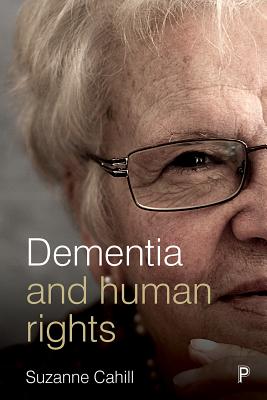The timely book challenges readers to rethink the intersection of dementia, policy, and care from a human rights perspective. Drawing on the latest research evidence and most advanced thinking in best practices, Suzanne Cahill brings together concepts such as disability, social inclusion, personhood, social justice, equality, participation, empowerment, autonomy, and normalization to apply a social constructionist lens to the current state of dementia services. Disputing the biomedical and clinical thinking that underlies services’ existing structure and organization, Dementia and Human Rights explores how many people living with dementia can actively manage their own lives.
Uniquely, the book captures the insights and subjective experiences both of people living with dementia and their caregivers (formal and informal), as well as of policy makers and service planners. Distilling international real life case studies, research evidence, and policy directives, this comprehensive, easy-to-read book makes an original argument for the joint improvement of quality of life and quality of care. More broadly, Cahill advocates for the need for social change, a greater awareness of human rights, and the incorporation of rights-based approaches into policy research and practice.
Uniquely, the book captures the insights and subjective experiences both of people living with dementia and their caregivers (formal and informal), as well as of policy makers and service planners. Distilling international real life case studies, research evidence, and policy directives, this comprehensive, easy-to-read book makes an original argument for the joint improvement of quality of life and quality of care. More broadly, Cahill advocates for the need for social change, a greater awareness of human rights, and the incorporation of rights-based approaches into policy research and practice.











